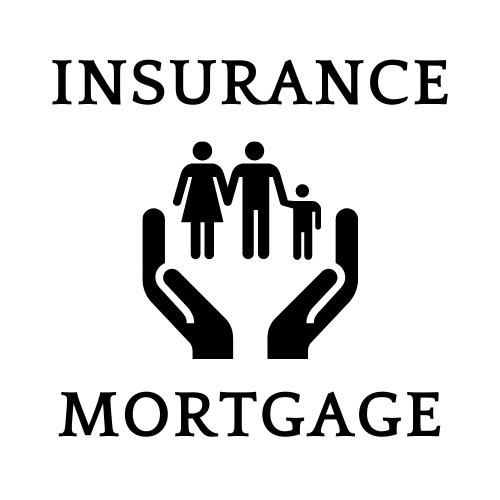Chartered Financial Analyst (CFA)
The CFA (Chartered Financial Analyst) is now sought by business people seeking to take advantage of money & wealth management.
A CFA charter holder must adhere to strict ethical standards, have at least four years of relevant professional experience, and pass three strenuous exams in securities analysis and portfolio management.
The CFA Institute’s Council of Examiners ensures that the curriculum remains relevant to market issues and the growing body of knowledge. Self-study is required for preparation. The program is graduate-level in nature.
The majority of financial services companies mention a CFA charter as a must, or at the very least a highly desired qualification. Each level of the CFA test costs $1,000, plus a $450 registration fee. The CFA exam is divided into three tiers. Charter holders must also pay annual national and local society dues. CFA is a strong brand in the finance qualification segment.
Certified Financial Planner (CFP)
Practitioners who want a more comprehensive approach to planning may seek certification as a Certified Financial Planner, which includes money management as one of its components. The credential’s multidisciplinary scope includes insurance, education, asset management, tax, employee benefit, and estate planning.
To become a CFP professional, candidates must be college graduates, have completed financial planning courses or the equivalent, have completed three years of work experience, adhere to professional conduct or ethical standards, and pass a one-day, six-hour board test. CFP certification is often the path taken by fee-only financial planners that take a holistic approach to their customers’ finances.
Although the majority of professionals are located in the United States, the Certified Financial Planner Board of Standards has addressed worldwide demand in the marks by outsourcing administration of the test to the Financial Planning Standards Board outside the United States (FPSB).
This non-profit organization establishes criteria for the test in each country where it is administered since planning is highly dependent on a country’s tax system, finance and tax legislation, and regulation. In 2020, the test will cost $825 on a regular basis. Annual dues are needed, as are 30 hours of continuing education reported biennially.
Chartered Life Underwriter/Chartered Financial Consultant (CLU/ChFC)
The Chartered Life Underwriter (CLU) and Chartered Financial Consultant (ChFC), two of the oldest credentials in the financial services sector, have their origins in the insurance business and are awarded by The American College.
Both cover material that overlaps substantially with the CFP test, but the emphasis is on insurance planning. The distinction is that each requires passing eight different multiple-choice exams on a variety of topics including taxes, estate planning, and investment management.
Additionally, these two certificates are designed for insurance and securities producers with the aim of boosting sales by enhancing knowledge across a wide variety of subjects. The CLU is priced at $2,150 for the three-course option and $4,950 for the full eight-course option. 16 The cost of the ChFC package is $2,150 for the three-course version and $5,400 for the eight-course version.
Often, producers acquire both certificates since many of the courses overlap and their combined pursuit costs little more than the cost of each separately. A minimum of three years of work experience and ongoing education are needed.
Certified Public Accountant, (CPA)
Though not strictly a qualification, the certified public accountant (CPA) license provides a significant competitive advantage in the fields of tax preparation, company planning, and financial analysis.
Generally, only an attorney or enrolled agent may represent clients before the Internal Revenue Service, in addition to a CPA (IRS).
Additionally, certified public accountants often take on major operational responsibilities inside businesses. These positions include those of chief financial officer (CFO) and chief operating officer (COO) (COO). Finally, CPAs are well acquainted in the double-entry accounting system, which qualifies them as experts in financial statement interpretation.
Chartered Alternative Investment Analyst (CAIA)
Since 2002, the CAIA Association has administered and conferred the Chartered Alternative Investment Analyst designation. The Chartered Alternative Investment Analyst program educates candidates about the fundamentals and advanced study of managed futures, hedge funds, real estate, private equity, and credit esoterica (credit derivatives and structured products).
Candidates show their product knowledge and application on two levels, with the first addressing the fundamentals of products and the second covering more advanced areas of study that expand on what the student learns at the first level.
The test includes a substantial portion on ethics, which is based on the CFA Institute’s Code of Ethics and Standards of Professional Conduct. Each level is evaluated twice a year, between September and March. Each level of the two-tier curriculum costs $1,250, plus a $400 registration fee. Requirements for work experience and ongoing education apply.
Financial Risk Manager (FRM)
The Financial Risk Manager (FRM) program is administered by the Global Association of Risk Professionals (GARP). Candidates who pass two tiers of multiple-choice exams in the field of investment risk management get the Financial Risk Manager certification. Level I focuses on the basics of quantitative analysis, markets, and products, valuation, risk, and risk management principles.
Level II expands on this basis by examining the market, credit, and operational risks, as well as risk management, investment management, and current financial market problems.
Created in 1997, the certification has developed from a single to two levels in recent years in reaction to the 2008 financial crisis, which is generally seen as a risk management blunder.
Finance qualification, regulators, and consultancy companies employ FRM holders. The total cost of the program is $1,425 and it may be finished in as little as four years. There is a prerequisite for work experience and an optional need for continued education. This might answer your question, which finance qualification is best to run your business?
AFFILIATE DISCLOSURE:
This post contains affiliate links, which means that if you click on one of the product links, and make a purchase I’ll receive a small commission at no cost to you. This helps me create awesome content for you.

Meet Krishnaprasath Krishnamoorthy, a finance content writer with a wealth of knowledge and experience in the insurance, mortgage, taxation, law, and real estate industries.





